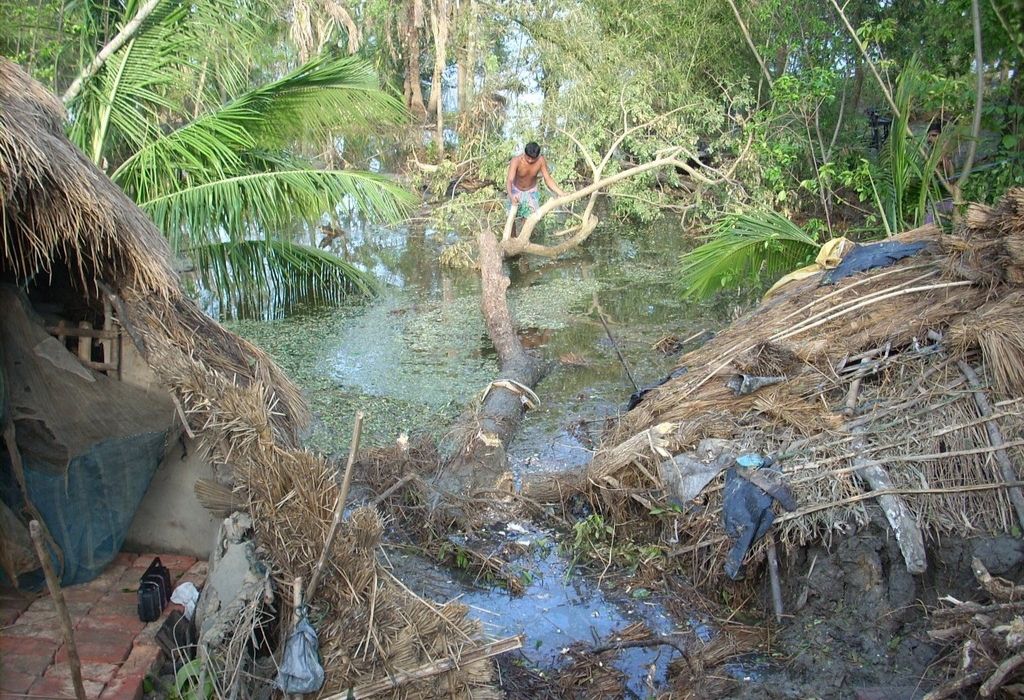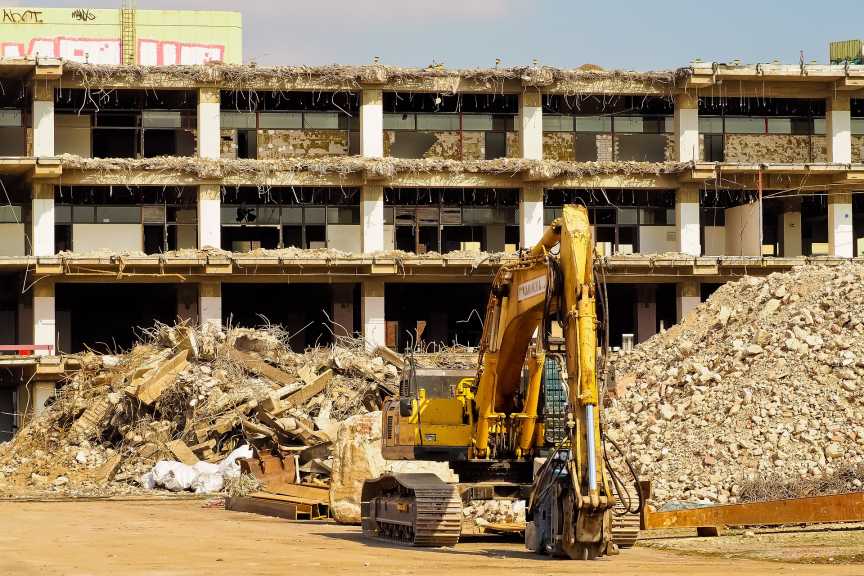India has been under various degrees of lockdown since March 25, 2020. With mainstream media coverage being flooded with COVID-19 news and updates, very little screen time has been allocated to issues that are unrelated to the pandemic. In this scenario, some news, such as the arrests of journalists and activists under the Unlawful Activities (Prevention) Act, may have caught your attention; but here are ten other things that might have slipped through the cracks.
On June 4, the twelfth edition of the Environment Performance Index was released by Yale University, which ranked India 168 out of 180 countries. Notably, India ranked 179 in terms of air quality. In the South-Asian region, India ranked the worst on five key environmental health parameters, including sanitation and drinking water, air quality, waste management, and heavy metals. The report also pointed out that India is nowhere close to meeting the Sustainable Development Goals (SDG) on environment, and suggested re-doubling national sustainability efforts on all fronts.
However, on June 18, the government started the process of auctioning 41 coal blocks for commercial mining, ‘to make India self-reliant in the energy sector.’ Several of these mines are located in biodiversity-rich areas where mining of coal will impose massive environmental costs, not limited to deforestation.
A report by the Rights and Risks Analysis Group (RRAG) revealed that as many as 55 journalists ‘faced arrest, registration of FIRs, summons or show causes notices, physical assaults, alleged destruction of properties, and threats between March 25 and May 31.’ This was done because the journalists reported on the plight of vulnerable communities during the lockdown, and highlighted the failure of the administration in providing relief.
The report stated that as many as 22 FIRs were filed against various journalists, at least 10 were arrested, and at least nine were subjected to beatings (including two in police custody). One journalist was held hostage by the sarpanch of the village in Odisha, while the house of another was allegedly demolished in Telangana. The highest number of attacks on media personnel was reported from Uttar Pradesh, followed by Jammu and Kashmir.
Related article: Latest news and updates on COVID-19
On May 7, a gas leak from an LG Polymers industrial plant in Vishakhapatnam, Andhra Pradesh claimed the lives of at least 12 local residents and 32 animals. Reports later revealed that the petrochemical plant did not have environmental clearances for its operations between 1997 and 2019.
As of June 21, the oil well is still ablaze, and around 11,000 people have been evacuated.
On May 27, a blowout (uncontrolled release of gas) took place at Baghjan oilfield, an ongoing project of Oil India Limited (OIL), in Tinsukia district, Assam. The incident forced evacuation of more than 2,000 local residents. On June 9, the gas well caught fire, incinerating grasslands, homes, and vehicles, and posing a significant threat to the Dibru-Saikhowa National Park, home to several endangered species. As of June 21, the oil well is still ablaze, and around 11,000 people have been evacuated. The Pollution Control Board, Assam has notified OIL to close down all production and drilling operations in the Baghjan area.
About two weeks before the blowout, on May 11, OIL was granted environmental clearance by the Ministry of Environment, Forest and Climate Change (MoEFCC) for drilling and testing of oil and gas at seven sites in Dibru-Saikhowa National Park in Assam.
On May 6, the Uttar Pradesh government approved an ordinance seeking to suspend 35 labour laws in the state temporarily for a period of three years. The ordinance, if approved by the centre, will mean that key laws, such as Minimum Wages Act, the Payment of Wages Act (except the section related to timely payment of wages), and the Payment of Bonus Act will no longer apply in the state. Experts have widely criticised the move as being undemocratic and infringing upon the fundamental rights of labour.
The governments of Madhya Pradesh and Gujarat have also made similar sweeping changes to labour laws. At least seven other states have allowed the extension of working hours from eight to 12.

With mainstream media coverage being flooded with COVID-19 news and updates, very little screen time has been allocated to issues that are unrelated to the pandemic. | Picture courtesy: Pexels
On April 23, the Forest Advisory Committee (FAC) of the MoEF&CC held a meeting to discuss the Etalin Hydro Electric Project, among other things. An FAC sub-committee has recommended that the project be allowed, with a condition that the developer deposits money for wildlife conservation in the area.
The resulting biodiversity loss could lead to further rise in zoonotic diseases such as COVID-19.
If cleared, the project will require the felling of at least 2,70,000 trees in Arunachal Pradesh’s Dibang Valley, and will result in large-scale decimation of the valley, which is globally recognised for its rich and unique biodiversity. It will also put more than 400 plants and 500 mammalian species at risk. Additionally, scientists opposing the project have noted the absence of a cumulative ecological impact assessment of the project, and have said that the resulting biodiversity loss could lead to further rise in zoonotic diseases such as COVID-19.
On April 20, the state’s forest department issued a proposal to transfer 778 hectares of the Rajaji National Park and Narendra Nagar forest division to the Kumbh Mela Samiti to initiate ‘temporary’ construction of camps, parking, and police check posts for the event scheduled for 2021. If approved, this use of the Rajaji National Park, a tiger reserve with a significant population of tigers, for non-forest purposes will be in violation of the Wildlife (Protection) Act, 1972 and the Forest (Conservation) Act, 1980.
In October 2019, the MoEF&CC had issued an order permitting temporary use of unprotected forest land for a maximum period of two weeks without prior approval of the central government. However, in this case, the forest land is intended to remain under the Kumbh Mela Samiti for more than nine months.
On April 18, The Ministry of Social Justice and Empowerment released the draft rules for the Transgender Persons (Protection of Rights) Act, that was passed in December 2019. The draft is only available for viewing in English for those with an internet connection, making it widely inaccessible to the community it affects directly, especially in the midst of the lockdown.
The draft is widely inaccessible to the community it affects directly.
There are many criticisms of the rules. For example, while the Trans Act granted the right to self-perceived gender identification and an option to get this status certified by the district magistrate, the proposed rules require proof of consultation with a psychologist as well.
The ministry only allowed comments and suggestions from the public on the draft rules until April 30th.
Update: A group of trans activists has asked the government to halt the implementation of the act because the community is unable to meet and discuss the act to provide comprehensive feedback, and because the proposed rules violate the provisions of the act itself, according to the activists. They have pointed out several criticisms of the rules.
On April 2, the Standing Committee of the NBWL, cleared projects in 11 states through a virtual meeting. These include the Nagpur-Mumbai superhighway for which more than 32,000 trees will be cleared, a highway construction in Goa which passes through the Mollem Wildlife Sanctuary, coal mining in parts of the Dehing Patkai Elephant Reserve in Assam, and a railway bridge in Madhya Pradesh and Telangana which goes through the Kawal tiger corridor.
According to an expert who was privy to the process, “In a virtual conference, it’s difficult to scrutinise maps that show the location of the proposed projects. There was also no occasion to ask questions of officials for clarifications.”
Update: Following a series of virtual protests against the NBWL’s clearing of coal-mining in the biodiversity havens of Dehing Patkai Elephant Reserve in Assam, all mining operations have been temporarily suspended.
On March 31, eight months after Article 370 was revoked in Jammu and Kashmir (J&K), the Ministry of Home Affairs issued new rules for permanent residency in the region. According to these rules, those who have resided in J&K for at least 15 years, or have studied there for seven years and appeared for Class 10 and/or Class 12 examinations, will now be considered ‘domiciles’ of the Union Territory of Jammu and Kashmir.
These new rules will allow non-natives to apply for local government jobs (which were so far reserved for native residents), leaving only non-gazetted class four jobs reserved for natives. Non-natives can now hold senior positions in the police force, administration, and state-owned universities of J&K. This move is being perceived as an attempt to alter the demographic composition of the region.
Update: On May 18, the Jammu and Kashmir administration notified the Jammu and Kashmir Grant of Domicile Certificate (Procedure) rules, enabling a fast-track procedure for issuance of Kashmiri domicile certificates, according to the new permanent residency rules. An officer failing to provide the certificate within 15 days would be fined INR 50,000.
Related article: The EIA Draft 2020 needs to be restructured
On March 12, the Ministry of Environment, Forest and Climate Change (MoEF&CC) released this notification to replace the EIA notification of 2006. If approved, it will ease the process of obtaining environmental clearances for businesses—public consultation will no longer be mandatory for several projects, including modernisation of irrigation projects and widening of national highways. Importantly, the issue also legitimises some actions that are currently categorised as violations, such as starting construction without a valid clearance. Additionally, it reduces the frequency of compliance reports required from project owners from once every six months to once every year.
Suggestions or objections to the draft can be communicated to the ministry via email on eia2020-moefcc@gov.in or via post to the address mentioned here, by May 11, 2020.
Update: Following widespread concern that the nationwide lockdown hindered the public consultation process, the deadline for sending in comments and suggestions to the draft Environment Impact Assessment notification 2020 has been extended to August 11.
This article has been updated on June 30 to include the first four points, add updates to the last four points, and reorder the list chronologically.
Is there anything else that should be on this list? Tell us in the comments.





